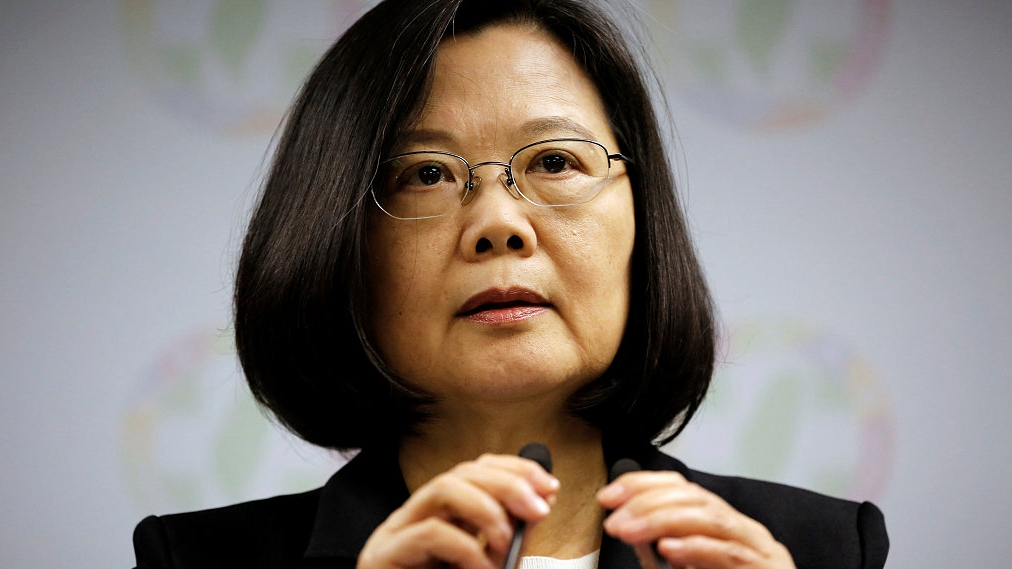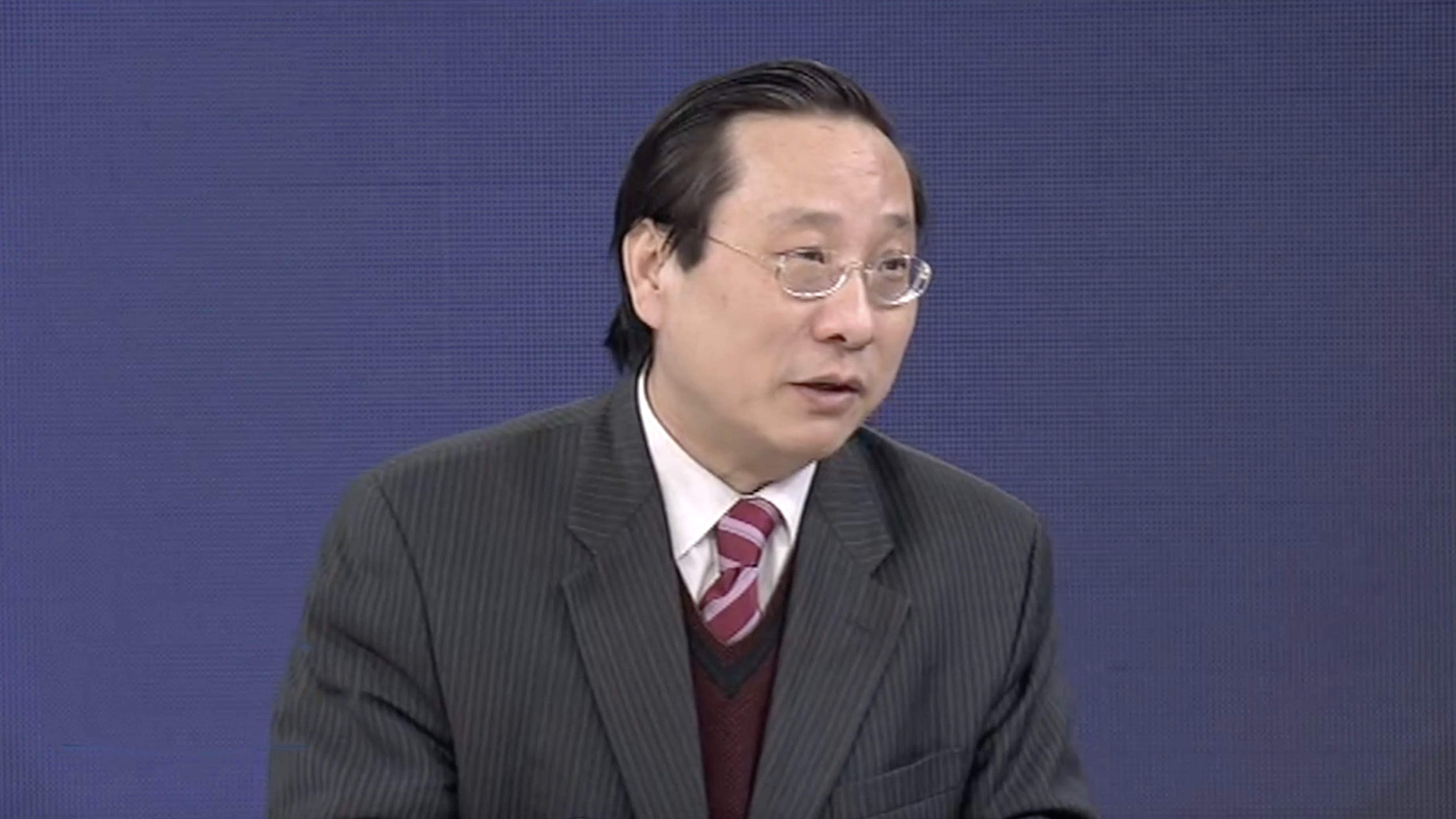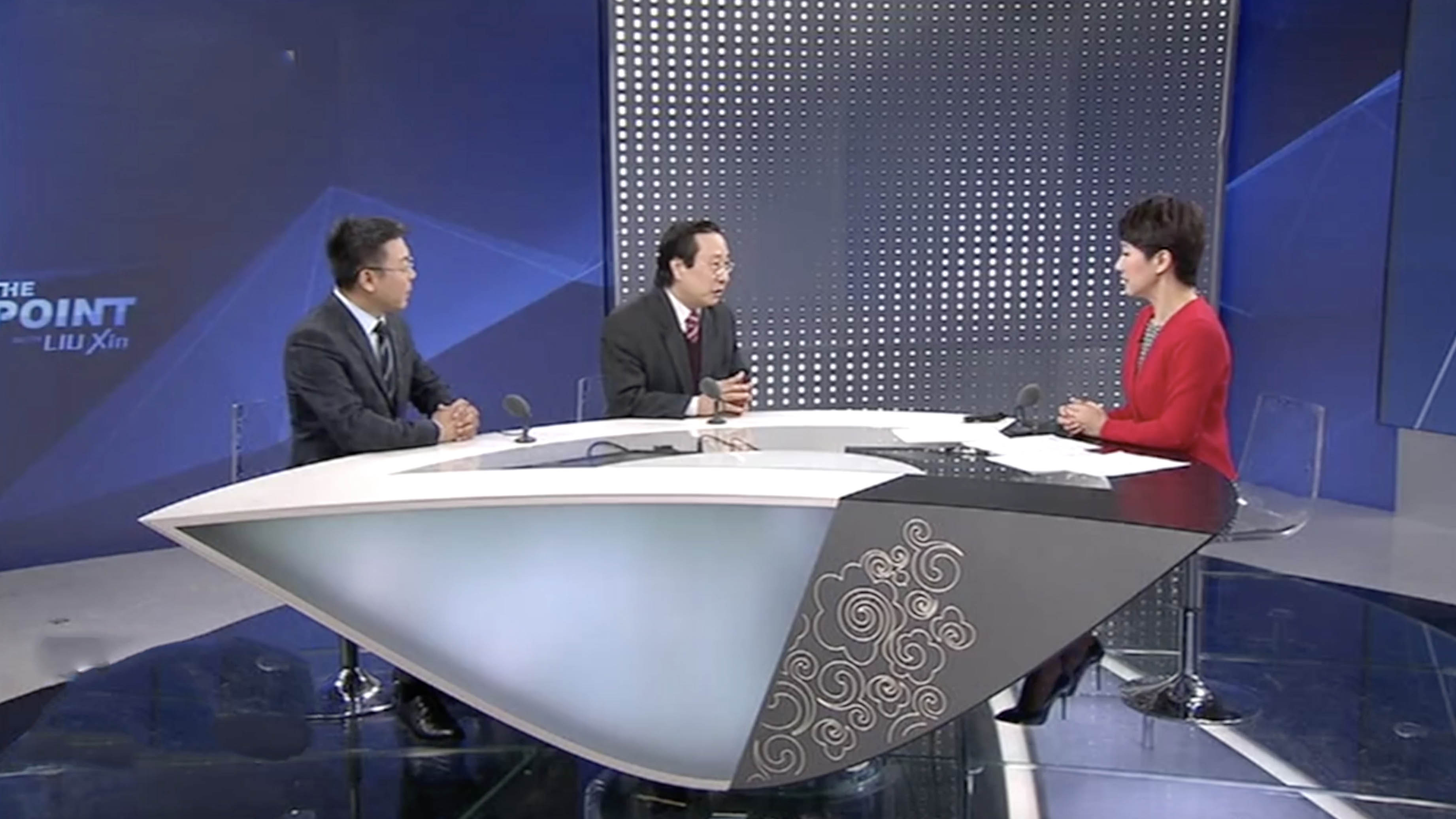
TV Show
22:37, 22-Feb-2019
Taiwan leader Tsai Ing-wen is “indulging in fantasy”
Updated
23:16, 22-Feb-2019
The Point with Liuxin
01:08

The interview with Taiwan's pro-independence leader Tsai Ing-wen made headlines on CNN on Monday, hyping up military threats supposedly posed by the mainland. She also told CNN she's ready to run for the leadership again in the 2020 general election, even though polls show her approval rating is lagging behind those of other candidates.
During the interview, Tsai Ing-wen said, “If it's Taiwan today, people should ask who's next? Any country in the region -- if it no longer wants to submit to the will of China, they would face similar military threats.”
“Tsai Ing-wen is purely indulging in fantasy,” commented Victor Gao, Vice President of Center for China and Globalization, as she treats Taiwan as if it were an independent country while in reality, most governments in the world recognize Taiwan as a part of China.
01:16

Xu Qinduo, Senior Fellow from Pangoal Institution, commented, “It is wishful thinking from Western countries, especially the U.S., that China will renounce the use of military force.” But on the other side, Xu emphasized, China has always been striving for the peaceful reunification of Taiwan.
“Chinese don't fight Chinese. We are willing to strive for peaceful reunification with utmost sincerity and greatest efforts as peaceful reunification is in the best interests of compatriots across the Strait as well as the Chinese nation,” said Chinese President Xi Jinping in the speech at a gathering marking the 40th anniversary of the Message to Compatriots in Taiwan.
President Xi continued, “We make no promise to renounce the use of force and reserve the option of taking all necessary means. This does not target compatriots in Taiwan, but the interference of external forces and the very small number of 'Taiwan independence' separatists and their activities.”
Commenting on President Xi's speech, Victor Gao said though not specifying an exact time frame of achieving peaceful reunification, President Xi laid out a framework and expressed firm resolution that “things need to be done.”
Over the past two years, growing tensions between the two sides are troubling people across the Taiwan Strait. This is largely due to Tsai Ing-wen's practice of going back on the 1992 Consensus outlining the “One-China Policy,” which is the foundation of the cross-Strait relationship, according to Xu.
00:36

Tsai Ing-wen has expressed her willingness to participate in the 2020 Taiwan general election, aiming for a second term, but a survey by Shih Hsin University's Poll Research Center shows that if Kaohsiung Mayor Han Kuo-yu jumps into the race representing the Kuomintang, and Taipei Mayor Ko Wen-je, the independent candidate, will run for the leadership as well, Tsai's approval rating will only be 22 percent. Last November, Tsai's Democratic Progressive Party suffered a catastrophic loss in the local elections, winning only 6 seats out of 22, throwing her political career into question.
Recently, a group of U.S. lawmakers, led by well-known China hardliner Marco Rubio, have asked U.S. House Speaker Nancy Pelosi to invite Tsai to address a joint session of the U.S. Congress.
On this matter, Victor Gao said that though the U.S. may not want to be involved in the crossfire between the two sides if tension escalates, many politicians in the U.S. just “want to use Taiwan as a pawn or a card” to “derail China's development,” and Tsai should be well aware of that.
(If you want to contribute and have specific expertise, please contact us at opinions@cgtn.com)

SITEMAP
Copyright © 2018 CGTN. Beijing ICP prepared NO.16065310-3
Copyright © 2018 CGTN. Beijing ICP prepared NO.16065310-3